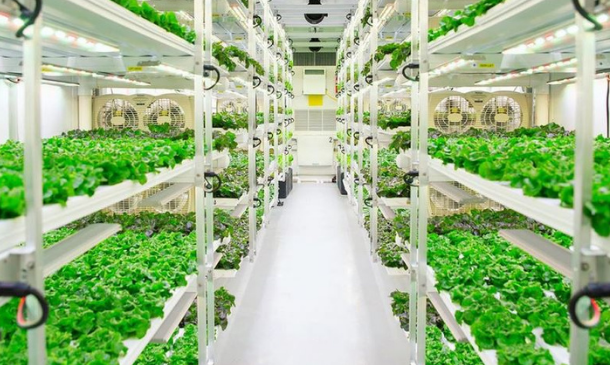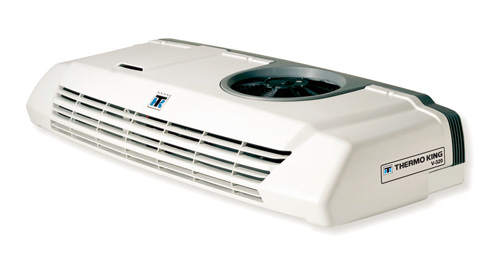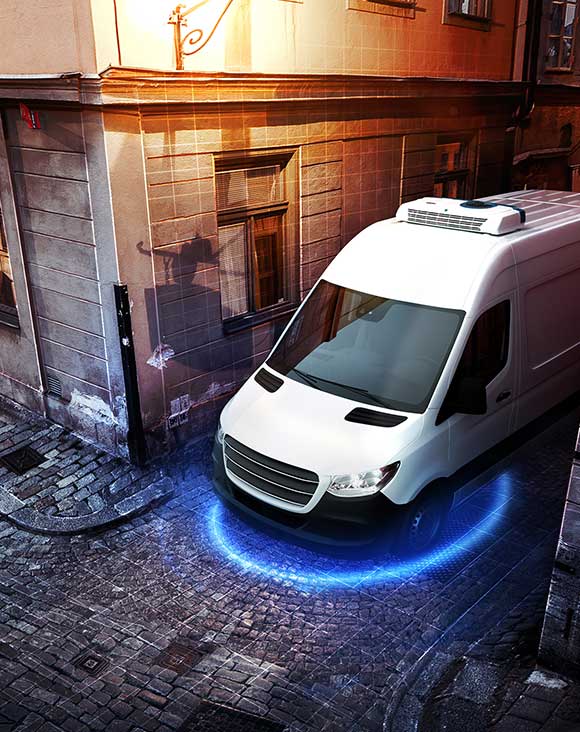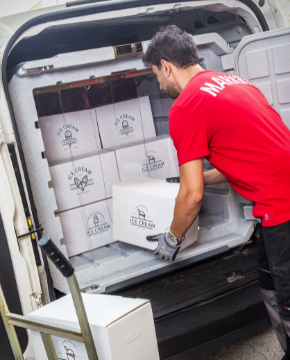Thermo King helps lettuce farmer keep produce safe during transport
You may have heard of a creative DIYer converting an old 40-foot shipping container into a tiny house, but have you ever heard of using a container as a farm?
Vertical Roots, a Charleston-based company in SC, uses retired shipping containers to create indoor hydroponic lettuce farms. Hydroponics is a soilless cultivation practice that uses nutrient-rich water to grow plants. The company is able to use this process to create high functioning farms within the metal containers.
Andrew Hare, general manager and co-founder of Vertical Roots explains, “A normal front door is added to the container just like you would on any building. Then our team goes to work putting in epoxy flooring, food-grade paint, laying in the electrical and plumbing, and then the growth channels themselves.” Each shipping container grows 3,400 heads per crop cycle. With 15-16 harvests per year, the whole facility produces over 500,000 heads of lettuce per month.
Several years ago, Andrew and his business partner and close friend Matt Daniels turned a hydroponics hobby into a lettuce producing business. To start, they sold their lettuce at local farmers’ markets. Slowly they expanded to local restaurants and catering companies. Finally, schools and colleges made their delivery routes before expanding to major grocery stores.
Locally, the Vertical Roots team has two full-time drivers who use Sprinter vans equipped with Thermo King V-320 Max units to distribute their produce. “We're loading up anywhere from 40 to 200 cases a day and doing the deliveries ourselves,” explains Andrew. “We like to maintain control over the delivery operation.”
Pandemic challenges
Covid-19 has put many businesses to the test but Andrew remains optimistic. “Some things I look at as a blessing and other things have been the same struggles that any company would face with Covid. We watched our entire sector in food service—which at the time was about 40% of our entire business portfolio—disappear overnight. All of the schools and colleges and catering businesses also went away back in March.” He said the blessing came when “Our grocery store business skyrocketed almost overnight. People were staying home and doing more shopping at local stores.”
Vertical Roots was also able to collaborate with their local restaurant customers to help employ some of their laid-off staff. “We brought in restaurant workers that were already used to handling our product and trained them in food safety to help package our product. Being able to provide job opportunities in the community for a few months was a silver lining,” Andrew commented with pride.
Thermo King of Charleston was there to support Vertical Roots when they needed it the most. Andrew explains, “The first vehicle we purchased was through a van dealership and we allowed them to be the point of contact and put all the pieces together for us.” The van dealer handled the acquisition of the vehicle and then finding an upfitter to install a refrigeration unit and build out the back on the delivery van to their specifications. Unfortunately, the experience went from bad to worse, “We had issues with a competitor’s unit and they did not service that very well and it became a big battle with them. It was very disappointing.”
Thanks to the team at Thermo King of Charleston, Andrew had a much better experience when the need came to purchase another delivery van. He worked with General Manager Trevor Floyd for his next purchase. “I really can't say enough good things about Trevor. He's always very easy to reach during or after work hours. He's always been very quick to help us,” Andrew comments.
Thermo King of Charleston knows that working hard for their customers can earn their continued business. “We appreciate the trust we’ve earned with Vertical Roots for all of their sales, service, and rental needs,” says Trevor. “What Andrew has done with his business is extraordinary and we’re just glad that we get to play a small role in that success. Businesses like this are what drives us to ensure we do everything we can to assist them.”
To find out where you can purchase the produce grown by Vertical Roots, check out their website at: https://www.verticalroots.com/





